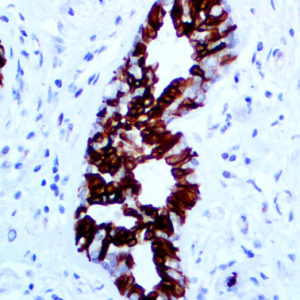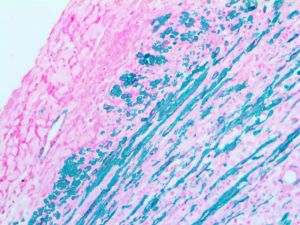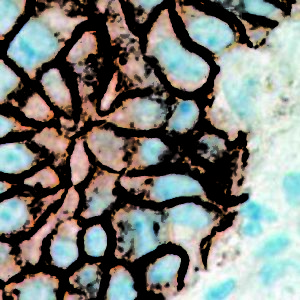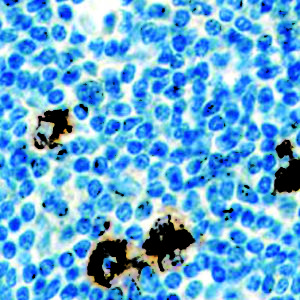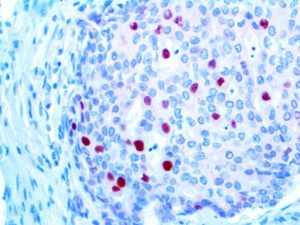
IHC of p21 on an FFPE Colon Carcinoma Tissue
| Intended Use | For In Vitro Diagnostic Use | |||||||||||||||||||||||||||||||||||
| Summary and Explanation | p21 is a potent cyclin-dependent kinase inhibitor. The p21 protein binds to and inhibits the activity of cyclin-CDK2 or -CDK1 complexes, and thus functions as a regulator of cell cycle progression at G1. The expression of this gene is tightly controlled by the tumor suppressor protein p53, through which this protein mediates the p53-dependent cell cycle G1 phase arrest in response to a varity of stimuli. In addition to growth arrest, p21 can mediate cellular senescence. p21 can also interact with proliferating cell nuclear antigen (PCNA) and plays a regulatory role in S phase DNA replication and DNA damage repair. Normal cells typically display a rather intense nuclear p21 expression. Loss of p21 expression has been associated with poor prognosis in several carcinomas including Gastric Carcinoma, Non-Small Cell Lung Carcinoma and Thyroid Carcinoma. | |||||||||||||||||||||||||||||||||||
| Antibody Type | Mouse Monoclonal | Clone | DCS-60.2 | |||||||||||||||||||||||||||||||||
| Isotype | IgG2a | Reactivity | Paraffin, Frozen | |||||||||||||||||||||||||||||||||
| Localization | Cytoplasmic, Nuclear | Control | Tonsil, Colon, Fallopian Tube, Breast Cancer, Colon Carcinoma | |||||||||||||||||||||||||||||||||
| Presentation | p21 is a mouse monoclonal antibody derived from cell culture supernatant that is concentrated, dialyzed, filter sterilized and diluted in buffer pH 7.5, containing BSA and sodium azide as a preservative. | |||||||||||||||||||||||||||||||||||
| Availability |
| |||||||||||||||||||||||||||||||||||
| Note: For concentrated antibodies, please centrifuge prior to use to ensure recovery of all product. | ||||||||||||||||||||||||||||||||||||

